Search Results
Showing results 1 to 20 of 56

Patterns and Relationships: Here, There & Everywhere
Source Institutions
In this math activity, learners use a variety of sensory modalities to gain experiences with identifying, describing and creating repeating patterns.
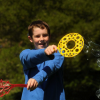
Wind Mapping with Bubbles
Source Institutions
Discover the wind's direction using bubbles, a map and a keen eye. Learners blow bubbles and note their general direction on a map, taking readings from different points around a building.
Stories in the Sky
Source Institutions
In this activity, learners create their own constellations and star patterns and write a short, descriptive story explaining the significance of their star pattern/constellation.

Creative Caps
Source Institutions
In this activity, young learners will explore shapes, textures, and geometries using household materials.
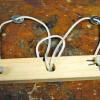
Two Washers
Source Institutions
In this activity, learners create a mind and math puzzle that requires a three-dimensional solution.
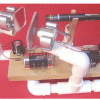
Laser Lissajous: PVC Version
Source Institutions
In this activity, learners use a laser pointer and two small rotating mirrors to create a variety of fascinating patterns, which can be easily and dramatically projected on a wall or screen.

Subtractive Paint Prints
Source Institutions
In this activity, learners of all ages will experiment with paint and printmaking.
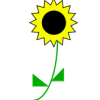
Patterns and Relationships: Peddling Petals
Source Institutions
In this math lesson, learners use the setting of a flower-making fundraiser to explore a variety of patterns. Learners examine the patterns in a flower design made of triangles surrounding a square.
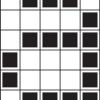
Color by Numbers: Image Representation
Source Institutions
Computers store drawings, photographs, and other pictures using only numbers. Through this activity, learners decode numbers to create pictures using the same process that computers use.

Pi Toss
Source Institutions
In this activity, learners explore a surprising method for calculating the mathematical constant pi, known as Buffon's Needle.
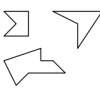
Looking Through the Algebraic Lens
Source Institutions
In this two-part math lesson, learners investigate problems that foster algebraic thinking across content strands. In the first part, learners explore even and odd numbers linked to quilts.
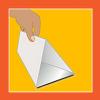
Kaleidoscope
Source Institutions
In this activity, learners investigate the reflective properties of light and mirrors as they make a kaleidoscope.
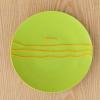
Cutting Pi
Source Institutions
In this activity, learners use a string and pair of scissors to find pi in the world all around them. Take the circumference of a round object with string and cut the string to that length.
Counting Books: Make Your Own!
Source Institutions
On the first night, I saw 5 stars in the desert. On the second night, I saw 10… What do you think I saw on the third night? Combine arts and crafts, literacy, and math by making a counting book.
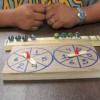
Games of Chance and Brains
Source Institutions
In this activity, learners build and play three math games. In the first game, called "Switcheroo," learners place marbles in holes 1 through 4 and 7 through 10.
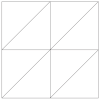
The Four-Square Quilt
Source Institutions
In this activity, learners arrange triangles together to make patterns to create paper quilts. Learners experiment with arranging the triangles in different ways to make various designs.
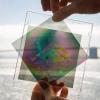
Polarized Light Mosaic
Source Institutions
In this activity, learners use transparent tape and polarizing material to create and project beautifully colored patterns reminiscent of abstract or geometric stained glass windows--no glass required
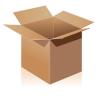
Patterns and Relationships: The Magic Box
Source Institutions
In this math lesson, learners participate in a variety of activities that give them experience in recognizing, describing, and extending repeating and arithmetic patterns.
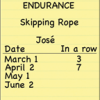
Endurance: How Many Can You Do in a Row?
Source Institutions
Combine math and exercise with this activity. Learners count how many times in a row they can skip rope or throw and catch a ball.
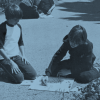
Plant Patterns
Source Institutions
In this outdoor mapping activity, learners explore where plants grow and map plant-distribution patterns.
